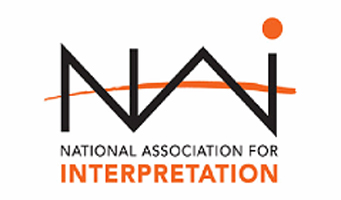The College of Arts and Sciences is offering a free training opportunity Jan. 10-13, 2019, for Ohio University undergraduate students interested in working in a museum or national park, thinking about a career in education, or wanting to improve their public speaking.
 Benefits to students in the program:
Benefits to students in the program:
- An advantage when applying for interpretive positions, whether seasonal or full time. The certification is widely recognized by parks, zoos, museums, historical sites, etc. Some state parks are requiring their interpretive staff to by Certified Interpretive Guide trained, even seasonal workers.
- Even if the students are looking at related fields, the certification could be a tipping point on an application. Smaller museums and parks may rely on their managers, curators, and even researchers to present public programs. The certification can be a great indicator of understanding of interpretive principles, and an elevated comfort level in preparing and presenting programs.
- In supervisory positions, the certification would help managers to hire and train staff and volunteers.
- The Certified Interpretive Guide program can be a “launch pad” into other, professional certifications with National Association for Interpretation, extending the possibilities.
- The concepts can also be applied effectively to any presentations, including teaching classes, public speaking engagements, and class projects.
Students in any major are invited to the Certified Interpretive Guide program, offered Jan. 11-14, from 9 a.m. to 5 p.m. The training is provided by Kenneth Bowald, educational programming specialist and a certified interpretive trainer. Students will take an exam to receive certification from the National Association for Interpretation
The Certified Interpretive Guide program, free to Ohio University students, is designed for anyone who delivers interpretive programs to the public. It combines both the theoretical foundations of the profession with practical skills in delivering quality interpretive programming to visitors.
This 32-hour course includes:
- History, definition, and principles of interpretation
- Making your programs purposeful, enjoyable, relevant, organized, and thematic
- Using tangible objects to connect audiences to intangible ideas and universal concepts in interpretive programs
- Presentation and communication skills
- Certification requirements (50-question literature review; program outline; 10-minute presentation)
- All materials, workbook, and CIG course textbook
At the end of the training course, students will take an exam and be scored on a presentation. If successful, CIG certification is good for a four-year period.
For more information, contact Dr. Nancy Tatarek, Associate Professor of Anthropology, at tatarek@ohio.edu.















Comments